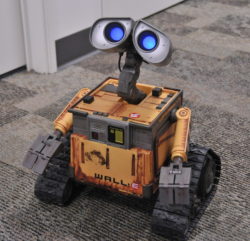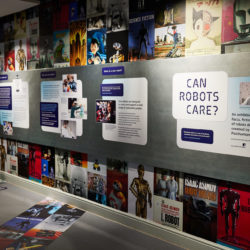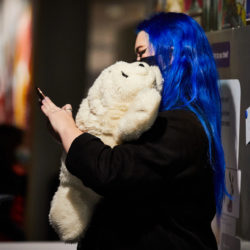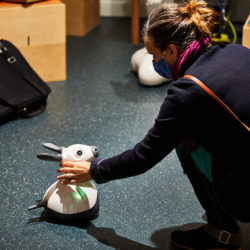Select Publications
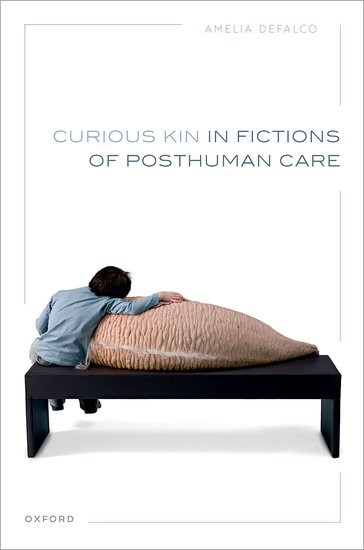
Curious Kin in Fictions of Posthuman Care
2023| Amelia DeFalco |Oxford University Press
Curious Kin in Fictions of Posthuman Care draws together contemporary narrative fictions that challenge humanist conceptions of care in their imaginative depiction of more-than-human affective bonds, arguing for an expansion care philosophy’s central figure: the embodied, embedded, and encumbered ‘human’. Read more
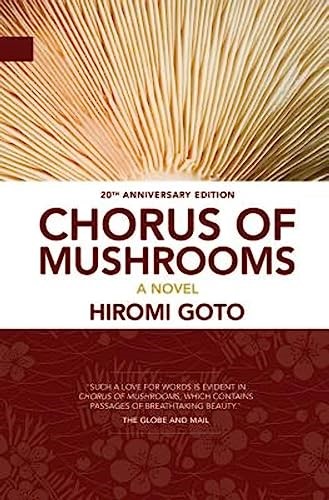
From Mushroom Men to Mycorrhizal Relations: Imagining Posthuman Aging and Care.
Forthcoming | Amelia DeFalco | Palgrave Handbook of Literature and Aging
This chapter explores mycorrhizal frameworks for imagining posthuman aging and care. ‘Mycorrhiza’ refers to the symbiotic association between plant roots and fungal mycelia in which the two organisms are conjoined in a mutually beneficial arrangement, exchanging nutrients and chemical messages, and ‘mycorrhizal networks’ to material and symbolic manifestations of interdependence that model more-than-human ways of relational being. The chapter analyzes a novel, Hiromi Goto’s Chorus of Mushrooms (1994), that imagines the mycorrhizal dimensions of human life and conveys the networked capacities of aging bodies as relational organisms. Goto’s novel positions human beings mycorrhizomically and organismically, as entangled and interdependent, depicting her characters as both material entities and narrative subjects enmeshed in dense, vivid, vital worlds teeming with more-than-human life.

Raised by Robots: Imagining Posthuman ‘Maternal’ Touch
What Do Sex Robots Want? Representation, Materiality, and Queer Use
2023 | Amelia DeFalco | Configurations
This essay addresses its title question by analyzing sex robots, real and imagined, as both representational objects and vital matter. Though frequently treated as perverse by popular media, actual sex robots are in fact remarkably conventional in their reproduction of a heteronormative sexual aesthetic that disavows the vibrancy of the sexualized object. Sex robot art and fictional narratives (both film and literature), including Jordan Wolfson’s installation Female Figure (2014), Alex Garland’s Ex Machina (2014), and Jeanette Winterson’s The Stone Gods (2007), employ and interrogate this kind of mimetic design. Read more

Raised by Robots: Imagining Posthuman ‘Maternal’ Touch
2023 | Amelia DeFalco & Luna Dolezal | Mapping the Posthuman
Posthuman parenting is fast becoming a reality with the development of technologies such as artificial wombs and childcare robots. Debates and concerns about these technologies often centre around questions of the risks and benefits of increased technological intervention into pregnancy and child rearing, while also circling around enduring feminist concerns regarding whether these technologies herald the liberation of women from biologically-determined motherhood, or whether they herald a dystopian age of patriarchal reproductive control. This chapter seeks to move beyond practical ethical estimations to consider the potential significance of the experiential dimensions of ectogensis and robot childcare as imagined in a range of media. Read more
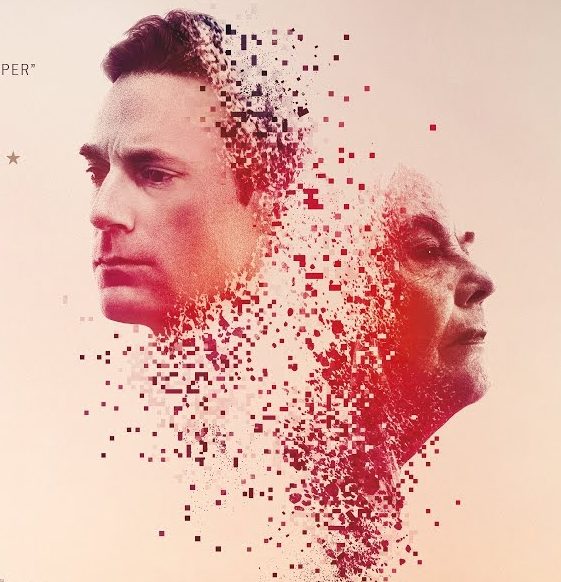
‘Posthuman Care and Posthumous Life’
2022 | Amelia DeFalco | in Critical Humanities and Ageing: Forging Interdisciplinary Dialogues ed. by Goldman M, Cole T and de Medeiros K.
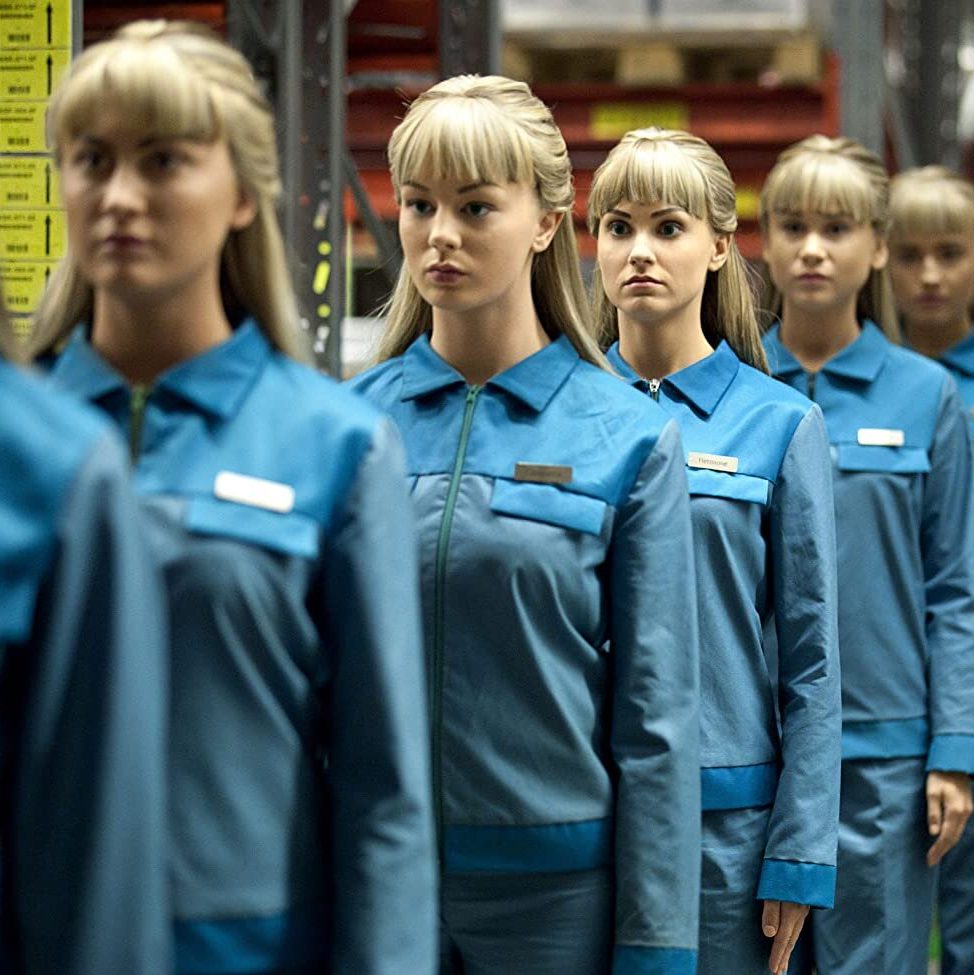
Toward a Theory of Posthuman Care: Real Humans and Caring Robots
2020 | Amelia DeFalco | Body and Society
This essay interrogates the common assumption that good care is necessarily human care.The essay reads speculative representations of robot care, particularly the Swedish television programme Äkta människor (Real Humans), alongside ethics of care philosophy and critical posthumanism to highlight their synergetic critiques of neoliberal affective economies and humanist hierarchies that treat some bodies and affects as more real than others. Read more

Beyond Prosthetic Memory: Posthumanism, Embodiment, and Caregiving Robots
2017 | Amelia DeFalco | Age Culture Humanities
This essay considers the social, cultural and ethical implications of robotic care alongside a particular speculative representation of posthuman care, the 2012 film Robot and Frank. Read more.

MaddAddam, Biocapitalism, and Affective Things
2017 | Amelia DeFalco | Contemporary Women’s Writing
This essay considers the ethical dimensions of Atwood’s recent speculative fiction, the MaddAddam trilogy (2003–14), alongside a framework that Nikolas Rose, Sunder Rajan, and others term as biocapitalism. Read more.
Research Activities and News
- Futures of Care Symposium at the Thackray Museum of Medicine
- Half-term fun with robots at the Thackray Museum of Medicine
- “The idea of the autonomous robot disguises all the human labour behind it”: An Interview with Teresa Heffernan
- Can Robots Care? Exhibition Launch at the Thackray Museum of Medicine
- “Let the robots do the heavy lifting!” A Blog Post for the Thackray Museum of Medicine
- An Interview with Conor McGinn
- Dr Amelia DeFalco speaks to Gayle Lofthouse on BBC Leeds
- ‘Can Robots Care? No, an unequivocal no’: An Interview with Robot Ethicist Aimee van Wynsberghe
- Call for Papers: Futures of Care Symposium


